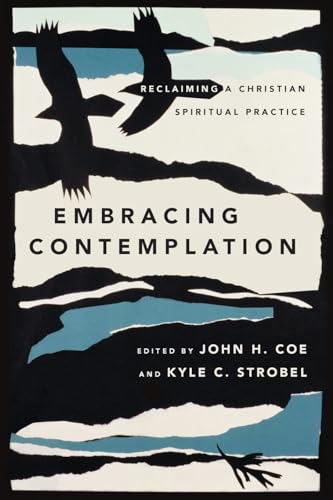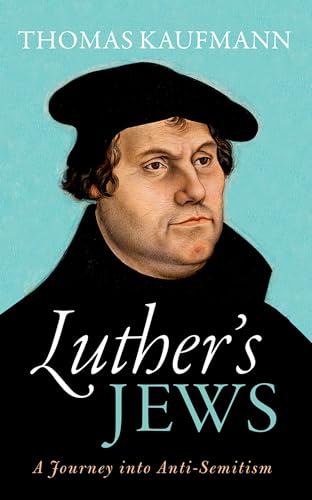Embracing Contemplation: Reclaiming a Christian Spiritual Practice
Written by John H. Coe and Kyle C. Strobel, eds Reviewed By Joey JekelWhat is contemplation? Can the church biblically support this vague-sounding concept often seen in New Age mysticism and Eastern spirituality? John H. Coe and Kyle C. Strobel, seek to answer these questions in their new anthology, Embracing Contemplation: Reclaiming a Christian Spiritual Practice.
Coe and Strobel compiled thirteen essays spanning across evangelical persuasions in order to enter into a Christian conversation on contemplation. The editors define contemplation as “a call to the presence of God that has been made available in Christ by the Spirit” (pp. 6–7), and this definition essentially serves as the book’s theme. However, Coe and Strobel do not advocate a strict, unmoving definition of contemplation but intend to encourage discussion within the church, as seen in the nuanced treatments of the book’s contributors.
Every Christian, including myself, will come to certain essays and have some disagreement with, or qualification for, the writers. This is a strength of the book. It opens a dialectical space for Christians to discuss contemplation.
While each essay has much to be enjoyed and praised, a couple stood out as the most significant in the collection. Outside of Coe and Strobel’s contributions to their anthology, I found Ashley Cocksworth and Hans Boersma made the most illuminating contributions to this anthology.
Cockswork’s essay, “Sabbatical Contemplation? Retrieving a Strand in Reformed Theology,” seeks to formulate a biblical theology of contemplation by looking to teachings on prayer and the Sabbath. He mainly draws from Scripture and the writings of John Calvin, in order to formulate a biblical view of contemplation. He begins his discussion of contemplation by looking at the concept and practice of prayer. Calvin says that prayer “at its deepest level is a practice of ‘pure contemplation’ before God” (p. 79). The connection here is that if the Christian life is a life of prayer, then the Christian life includes contemplation. After looking at prayer, Cocksworth draws the reader’s attention to the Sabbath as expounded in Genesis 2:1–3.
Calvin and Cocksworth both claim that God takes this rest from creation to reflect on, to contemplate, his works. He argues, then, that if we are to imitate God, we are to rest from our works in order to contemplate God and his works. Cocksworth explains, “Sabbatical contemplation is about gift: the sharing, by way of the son, in God’s own rest” (p. 88). He ends this essay with a call to action directly stemming from this Sabbath-formed contemplation. He states that “in sabbatical contemplation is to be found a peculiarly active sort of passivity: rest. On closer inspection, resting in God is hard work—it requires action, commitment, and even the countercultural reordering [of] our desire[s]” (p. 93). The reason I find Cocksworth’s essay so illuminating lies in its envisioning of what contemplation is, a way to commune with God and experience his Sabbath rest today.
Hans Boersma’s essay, “The Beatific Vision: Contemplating Christ as the Future Present,” concerns what it will look like to see God in glory. It aims to guide us in how to see God in the present. In such passages as 1 John 3:2, John shows us what heaven will entail—seeing God as he is (the beatific vision). Boersma looks backward to God’s past revelation of himself (e.g., creation, the covenants, the incarnation). He then looks forward to the full and perfect revelation of himself in glory in order to form a biblical understanding of contemplation.
The reason we practice contemplation is to commune with God, which presents a partial image of perfect, heavenly communion with the triune God. Boersma shows us that “God gives ever-greater opportunity for contemplating him, so that we may get a foretaste of the beatific vision through these early sacramental anticipations of it” (p. 221). Boersma opens our eyes to the truth that we experience the fullness of heaven now, and one significant way of doing so lies in contemplation.
My review of this book has been more theological than practical. Yet, each writer puts forth tangible steps to practice contemplation. One practice mentioned in the book is lectio divina, or “divine reading.” Like many ancient practices, lectio divina evokes mixed responses from evangelicals. This review does not regard lectio divina, or any contemplative practice, as a replacement to sound biblical exegesis. Rather, it is a tool to still the mind so that one may reflect on the Bible.
In practicing lectio, one sits down with a short passage of Scripture, reading it four consecutive times. After the first time, readers get the surface-level sense of the passage. After the second time, a person observes and repeats words, phrases, and sentences that seem significant. After the third time, one prays about how the passage bears upon their life and the lives of others. After the fourth time, readers spend 5–10 minutes in silent contemplation. This is one practical step to open our minds and hearts to discern God’s presence, received by grace.
This book will be a conversation-starter for many Christians, whether pastors, scholars, or laypeople. Coe and Strobel conclude the anthology well when they write, “Scripture points Christians to real wisdom and discernment in the spiritual life, and the church must continually wrestle with the lived reality of that calling” (p. 286). Embracing Contemplation can and will assist anyone who wants to join in this task.
Joey Jekel
Joey Jekel
Reformed University Fellowship
Tuscaloosa, Alabama, USA
Other Articles in this Issue
In appreciation for the recent resurgence of interest in biblical theology and typological interpretation, this article considers Jonathan Edwards’s typological interpretive practices and principles...
The Insights and Shortcomings of Kantian Ethics: Signposts Signaling the Truthfulness of Christian Ethics
by Zachary BreitenbachImmanuel Kant proposed what he considered to be the one true ethical system—a system rooted in pure reason, without recourse to grounding morality in God, that sought to explain universal moral truth...
The Doctrine of Scripture and Biblical Contextualization: Inspiration, Authority, Inerrancy, and the Canon
by Jackson WuThis essay explores the relationship between contextualization and an evangelical doctrine of the Bible, with a special emphasis on biblical inspiration, biblical authority, biblical inerrancy, and the biblical canon...
Can We Hasten the Parousia? An Examination of Matt 24:14 and Its Implications for Missional Practice
by C. J. MooreAmong the many possible motivations for mission participation, the eschatological motivation for missions has recently grown in prevalence...
“Striving for Glory with God”: Humility as the Good Life in Basil of Caesarea’s Homily 20
by Coleman M. FordBasil of Caesarea (c. AD 330–379) presents humility as the essence of the good life in his Homily 20...







